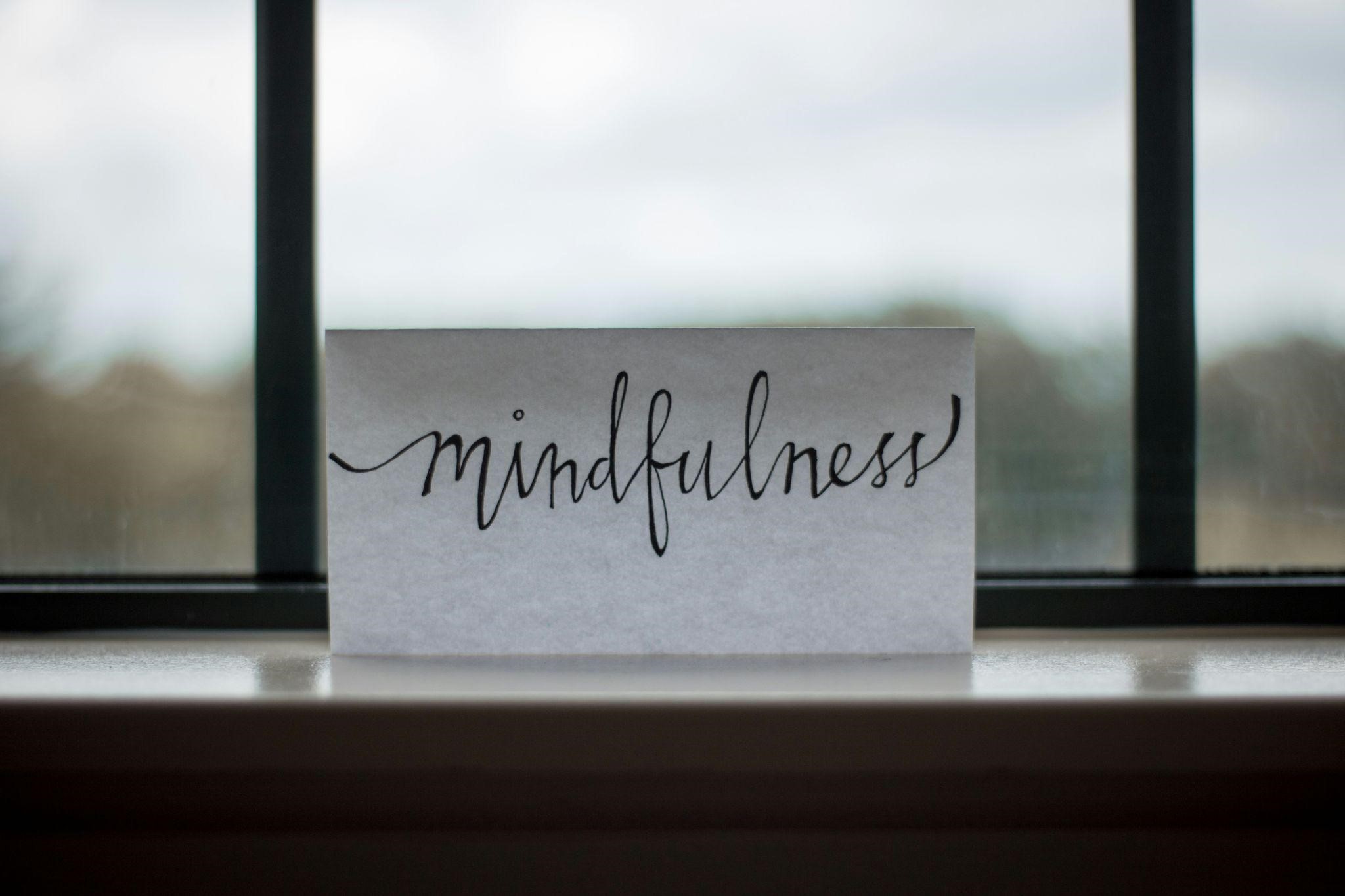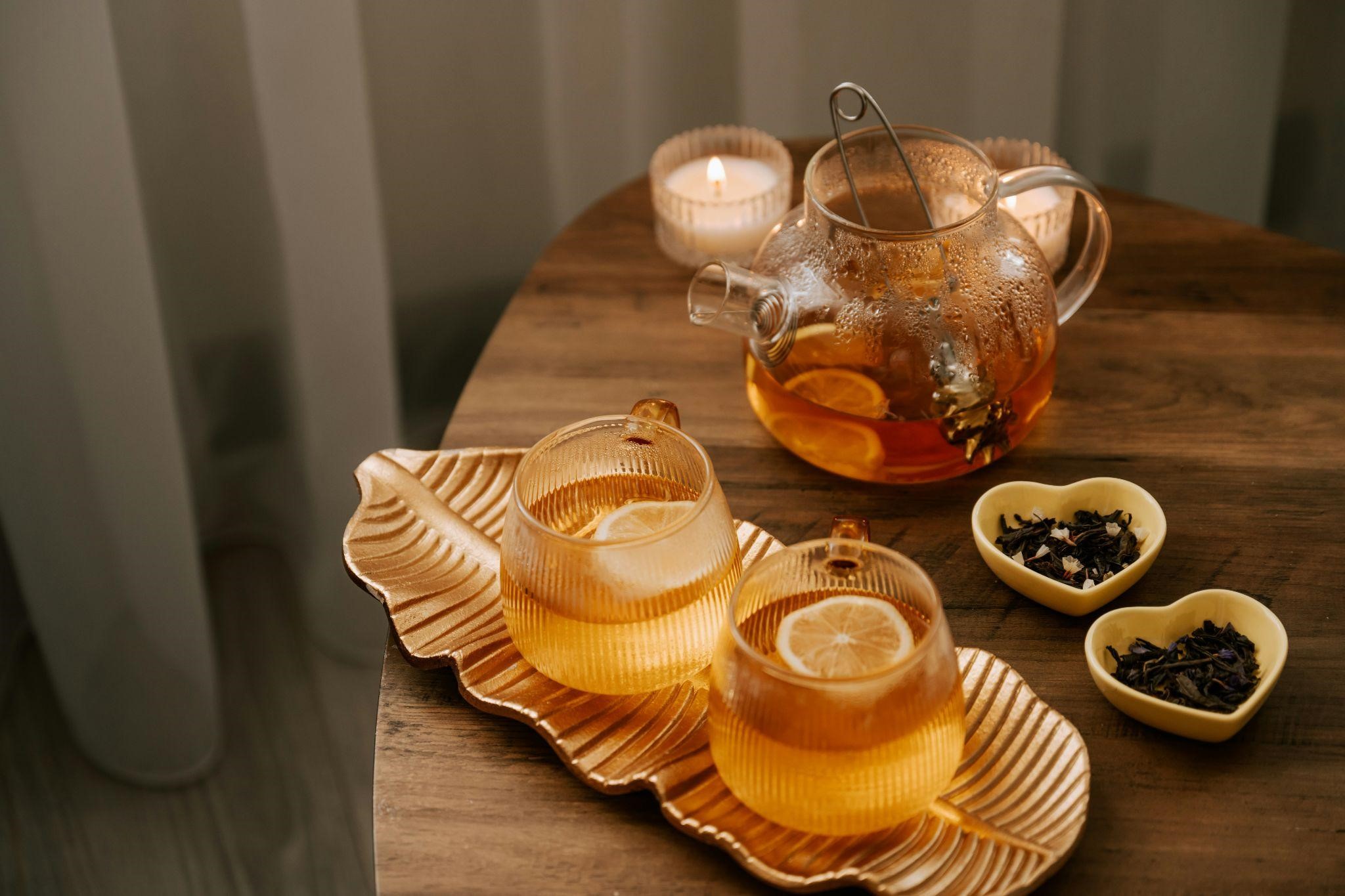Overwhelmed by Life? Discover Natural Remedies for Stress and Find Your Inner Calm
Posted by Warren Cargal, L.Ac on Nov 17, 2024
More Chinese Herbs and Sleep Related Content from Acupuncture Atlanta:
► Chinese Herbs for Sleep: Ancient Wisdom for Restful Nights
► No Need to Suffer! 23 Herbs for Perimenopause
► 5 Natural Tips for a Better Sleep
► Herbs to Balance Qi
*Join over 23k Community Members on Acupuncture Atlanta Facebook Page
*Connect With Holistic Followers On Acupuncture Atlanta Instagram
*Stay Updated with Wellness Tips on Acupuncture Atlanta X (Twitter)
*Explore Health Insights on Acupuncture Atlanta YouTube Channel
SHOP PREMIUM CHINESE HERBAL REMEDIES AND SUPPLEMENTS FOR YOUR WELLNESS JOURNEY
ON THE ACUATLANTA ONLINE STORE
.
.
.
In today’s fast-paced world, feeling overwhelmed has almost become the norm. With endless to-do lists, constant demands, and the pressure to balance work, family, and personal needs, it’s no wonder that stress has become a common struggle for so many of us. If you’re here, you’re likely seeking to calm the chaos without turning to harsh medications or temporary fixes. You want real, lasting relief—something that aligns with your natural lifestyle and supports your well-being holistically. In this article, we’ll explore natural remedies for stress that go beyond the surface, helping you find inner peace and a sense of balance. These methods aim to relieve the symptoms and restore calm so you can return to a grounded and fulfilling life.
Are You Experiencing Stress and Anxiety?
We often say we are stressed out, but what is stress, and is it bad for us? Stress is actually the body's response to external pressures or perceived threats, triggering a "fight or flight" reaction that prepares us to respond quickly. It’s a natural survival mechanism, releasing hormones like cortisol and adrenaline to increase alertness and energy, which is good. However, while short-term stress can help motivate us to meet challenges, prolonged or chronic stress can strain the body and mind.
You may be wondering if stress and anxiety are the same thing. Anxiety, while often related to stress, is a more internalized response. It’s a worry or unease that can persist without an immediate, identifiable threat. Anxiety frequently involves an anticipatory element, with individuals feeling on edge or overly concerned about future events. In mild forms, it’s a normal part of life, but when persistent, anxiety can become overwhelming and interfere with daily functioning. If you are experiencing stress and/or anxiety, there are many options to help you relax, destress, and live a more balanced life. First, it is important to determine which symptoms you are experiencing and how best to help yourself relax.
Common Symptoms of Anxiety and Stress You May Have
Anxiety and stress can manifest in both physical and emotional ways, often overlapping and intensifying each other. Recognizing which anxiety symptoms you have is a critical first step toward addressing them and finding relief.
Physical Symptoms
Stress and anxiety can create noticeable changes in your body, including:
- Muscle Tension: Tightness in the shoulders, neck, or back, often signaling chronic stress.
- Rapid Heartbeat or Palpitations: Feelings of a racing heart or an increased heart rate.
- Digestive Issues: Upset stomach, nausea, or digestive irregularities, as the digestive system is highly sensitive to stress.
- Headaches and Fatigue: Frequent tension headaches and exhaustion are common with prolonged stress.
Emotional and Cognitive Symptoms
Along with physical signs, stress and anxiety also affect your mind:
- Restlessness or Irritability: A feeling of being on edge or easily agitated.
- Constant Worry or Overthinking: Persistent worry about various aspects of life, often out of proportion to actual circumstances.
- Difficulty Concentrating: Mental “fog” or trouble staying focused on tasks.
- Sleep Disruptions: Difficulty falling asleep, staying asleep, or waking up feeling unrested, all of which can perpetuate stress.
Behavioral Changes
Anxiety and stress can influence behavior, sometimes leading to habits like:
- Avoidance: Steering clear of certain people, places, or stressful situations that might trigger anxiety.
- Social Withdrawal: Pulling back from friends and family, leading to isolation.
- Increased Reliance on Substances: Turning to alcohol, drugs, caffeine, or other substances to manage symptoms.
Do any of these resonate with you? If so, luckily, there are natural remedies to help you relieve stress and find your inner calm.
What are the Best Natural Remedies for Stress and Anxiety?
The best natural remedies for stress and anxiety relief involve loving yourself enough to prioritize your inner calm and peace. There are many ways to practice self-care and reduce the tension and stress in your life.
Herbal Teas and Supplements
Herbal teas and supplements are a simple yet powerful way to calm the mind and body. Chamomile and lavender are widely recognized for their calming effects, and they are often used in teas and essential oils to promote relaxation and improve mood. Passionflower and valerian are also popular natural remedies for stress that can ease symptoms, helping to reduce tension without harsh side effects. However, they may make you drowsy and are best taken right before bed.
Mindfulness and Meditation for Stress Reduction

Mindfulness exercises and meditation are effective techniques for naturally calming the nervous system. Slow, controlled, deep breathing can lower cortisol levels, while regular meditation sessions help reduce anxious thoughts and improve mental clarity. Both practices are easy to integrate into daily life and can make a profound difference over time.
Exercise and Physical Activity for Stress Relief
Regular exercise, such as yoga, walking, or even gentle stretching, releases endorphins that elevate mood and reduce stress. Spending time outdoors further amplifies these benefits, as nature exposure has been shown to reduce anxiety, improve focus, and enhance mental well-being, even after just a short walk. So, make sure you prioritize physical activity in your daily routine.
Aromatherapy for Calming Effects
Aromatherapy uses essential oils, like lavender, bergamot, and sandalwood, to promote relaxation and ease stress. Scents have a powerful impact on mood, and diffusing essential oils at home or adding a few drops to a warm bath can create a soothing atmosphere, calming your mind and body.
Journaling and Gratitude Practices
Writing down thoughts and worries can help release tension, creating a mental space that feels clearer and less cluttered. A gratitude practice, where you focus on positive moments daily, can shift your mindset toward a more balanced and hopeful perspective, which helps reduce stress over time. It is recommended to begin journaling and practicing gratitude first thing in the morning to start your day off on the right foot, feeling relaxed and positive rather than trying to ease anxiety later in the day.
Dietary Changes and Lifestyle Adjustments for Anxiety Relief
You should strive to eat a nutrient-dense diet to improve overall physical health. Reducing stimulants like caffeine and sugar can help with mood regulation and energy levels, while foods high in magnesium, omega-3s, and antioxidants support brain health and resilience to stress. You should also limit your alcohol intake, stop using tobacco, and consider taking supplements for mood and emotional support.
Acupuncture and Massage Therapy
In our busy world, we need to learn to relax so that stress doesn’t override our sense of well-being. Acupuncture, a traditional Chinese medicine practice, can help rebalance the body’s energy and promote a deep sense of relaxation, naturally reducing stress. Similarly, massage therapy relieves muscle tension and lowers stress hormones, enhancing overall relaxation and contributing to a more balanced state of mind.
Why Are Natural Remedies for Stress Beneficial?
Natural remedies for stress offer a gentle, holistic approach to mood and emotional support, calming the mind and body without the side effects often associated with medication. By focusing on natural solutions like herbs, relaxation techniques, and lifestyle changes, you support your body’s healing processes, promote long-term resilience, and nurture overall well-being. These remedies relieve stress symptoms and help restore balance, making them ideal for those seeking sustainable, health-conscious relief.
Herbal Treatments for Stress and Anxiety That Work
When searching for natural remedies for stress, herbal treatments offer a natural and holistic approach to managing stress and anxiety, leveraging the therapeutic properties of plants known for their calming and mood-stabilizing effects. Here are some of the most effective herbs commonly used to ease stress and support emotional balance:
1. Chamomile
Chamomile is widely known for its gentle, calming properties. Often enjoyed as a tea, it helps to relax the mind and body, making it ideal for reducing mild anxiety and promoting better sleep and relaxation. Chamomile tea also has anti-inflammatory properties that may provide added physical relaxation.
2. Lavender
Lavender, popular in both essential oils and supplements, has been shown to reduce anxiety levels and improve mood. Its soothing scent works well in aromatherapy, promoting a sense of calm and relaxation. Lavender is also effective in helping to ease symptoms of mild insomnia and stress-related headaches.
3. Passionflower
Passionflower is an herbal sedative that works to alleviate anxiety and restlessness. Commonly available in teas and tinctures, it’s known to increase levels of gamma-aminobutyric acid (GABA) in the brain, which helps reduce overactivity and nervousness, supporting a calm and focused mind.
4. Valerian Root
Valerian root is often used to promote relaxation and improve sleep quality. Known for its strong soothing properties, it’s helpful for those with anxiety-related insomnia. However, because valerian can cause drowsiness, it’s best used in the evening or under guidance from a healthcare provider.
5. Ashwagandha
An adaptogen, ashwagandha helps the body manage stress by balancing cortisol levels. It’s known to improve resilience to physical and mental stress, making it beneficial for reducing overall anxiety and boosting energy. Ashwagandha is often taken in capsule form and can support a more relaxed, grounded feeling.
6. Lemon Balm
Lemon balm, a member of the mint family, has long been used to relieve stress and mild anxiety. Its mild sedative effects help to promote relaxation without causing drowsiness, making it suitable for daytime use. Lemon balm is available in teas, tinctures, and supplements.
7. Kava
Kava is recognized for its powerful calming effects and is often used to relieve social anxiety. While effective, kava should be used with caution, as excessive use has been linked to liver issues. Consult a healthcare provider before use, especially for those with liver conditions.
Potential Side Effects and Precautions for Natural Remedies
While natural remedies for stress and anxiety are generally considered safe, some can still cause side effects or interact with medications. For instance, herbs like chamomile may interact with blood-thinning medications, potentially increasing bleeding risk. Kava and valerian, both known for their calming effects, can cause drowsiness and should not be combined with alcohol or certain medications that depress the nervous system, as this may enhance sedative effects. Additionally, natural supplements may vary in potency, leading to unpredictable impacts if not used properly. Some, such as kava, are known to impact liver health when used excessively. While beneficial in aromatherapy, essential oils like lavender may cause skin irritation if applied directly without proper dilution.
To minimize risks, it's essential to consult a healthcare provider before starting new natural remedies for stress, especially if you’re taking other medications or have existing health conditions. A healthcare professional can help ensure that your chosen remedies are safe and effective, supporting your journey to manage stress and anxiety naturally while safeguarding your overall well-being.
The Role of Therapy and Professional Help in Managing Stress and Anxiety
While natural remedies for stress and anxiety can be highly effective in alleviating symptoms, therapy and professional support also play a critical role in achieving lasting relief. Engaging in therapeutic practices, such as talking with a therapist or participating in structured treatments like Cognitive Behavioral Therapy (CBT), allows individuals to address the root causes of their anxiety and stress. These therapies offer tools for managing mental health in a way that fosters long-term resilience, helping individuals develop new, healthier ways of coping that go beyond symptom relief.
Cognitive Behavioral Therapy (CBT) for Anxiety Treatment
Cognitive Behavioral Therapy (CBT) is one of the most widely used and effective treatments for anxiety. CBT focuses on identifying and reshaping negative thought patterns that contribute to stress and anxiety. Through guided exercises, individuals learn to recognize distorted or unhelpful thoughts and replace them with healthier perspectives, reducing the intensity of anxiety and improving overall mental well-being. This process helps individuals cope with current stress and equips them with valuable skills for managing future challenges, making it a powerful tool for sustainable stress relief.

More Chinese Herbs and Sleep Related Content from Acupuncture Atlanta:
► Chinese Herbs for Sleep: Ancient Wisdom for Restful Nights
► No Need to Suffer! 23 Herbs for Perimenopause
► 5 Natural Tips for a Better Sleep
► Herbs to Balance Qi
*Join over 23k Community Members on Acupuncture Atlanta Facebook Page
*Connect With Holistic Followers On Acupuncture Atlanta Instagram
*Stay Updated with Wellness Tips on Acupuncture Atlanta X (Twitter)
*Explore Health Insights on Acupuncture Atlanta YouTube Channel
SHOP PREMIUM CHINESE HERBAL REMEDIES AND SUPPLEMENTS FOR YOUR WELLNESS JOURNEY
ON THE ACUATLANTA ONLINE STORE
.
.
.
Support Groups and Social Support for Managing Stress
Support groups provide a unique space for individuals dealing with feelings of anxiety and stress to connect with others who share similar experiences. These groups foster a sense of community and understanding, which can help reduce feelings of isolation that often accompany chronic anxiety. In a supportive environment, individuals can openly discuss their struggles, learn new coping strategies, and feel validated in their experiences. Whether in-person or online, social support is valuable for building resilience. It is an essential part of a comprehensive approach to natural remedies for stress so you can find your inner calm and enjoy your life.
Frequently Asked Questions
What are Natural Ways to Relieve Stress and Anxiety Fast?
Deep breathing exercises, aromatherapy with calming essential oils (like lavender or bergamot), and short, mindful meditation sessions can quickly calm the mind and reduce anxiety. Other natural remedies for stress include herbal teas, such as chamomile, which provide fast, soothing relief.
What are the Best Herbal Supplements for Managing Anxiety and Stress?
The best herbal remedies for anxiety and stress include chamomile, lavender, ashwagandha, and passionflower. Each offers calming benefits and can be incorporated into a daily routine through teas, supplements, or aromatherapy.
What is the Best Diet for Reducing Anxiety Naturally?
A diet rich in whole foods, including leafy greens, nuts, seeds, and foods rich in omega-3 fatty acids like salmon, can support brain health and help reduce anxiety. If you do not get enough in your diet, consider supplements. Limiting caffeine, sugar, and processed foods may also stabilize mood and reduce stress.
What is an Alternative to Xanax?
Natural alternatives to anti-anxiety medications like Xanax include valerian root, passionflower, and kava. These herbs offer calming effects without the addictive properties of benzodiazepines, but they should be used under the guidance of a healthcare provider.
Can Conventional Medications for Anxiety Disorders Be Used in Conjunction with Natural Anxiety Remedies?
Yes, prescriptions for stress and anxiety can often be used alongside natural remedies, but it’s essential to consult with a healthcare provider before combining them. Some natural remedies, especially herbs like kava or valerian, may interact with prescription medications, potentially increasing adverse effects or altering the medication's effectiveness. A mental health professional can guide safe combinations, helping you create a balanced approach that incorporates both prescribed treatments and natural methods to manage anxiety effectively.











